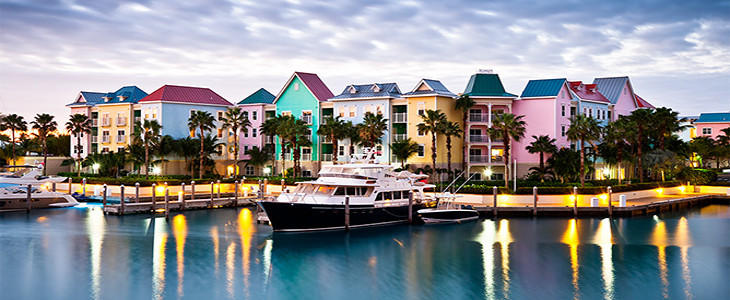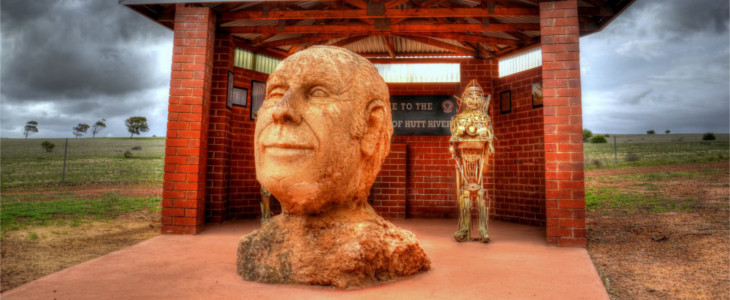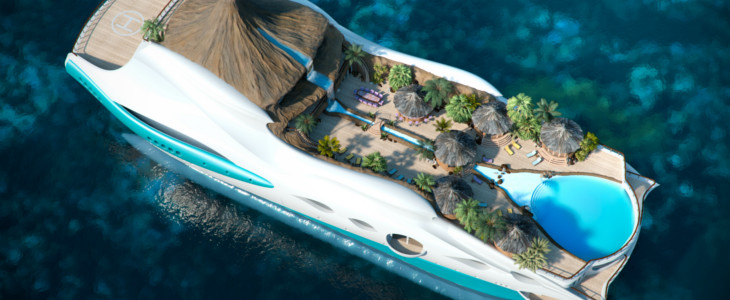Bahamas

Capital city: Nassau
Currency: Bahamian dollar (BSD)
Population: 372,000
Language: English
GDP $7.4 billion
The Bahamas (officially the Commonwealth of The Bahamas), consists of more than 700 islands, cays, and islets in the Atlantic Ocean and encompasses 470,000 km2 of ocean space. It is located north of Cuba, southeast of the US state of Florida, and east of the Florida Keys.
The Bahamas is the site of Columbus’ first landfall in the New World in 1492. Later the Bahamas became a haven for pirates, including the infamous Blackbeard (c.1680–1718) and was known as the ‘Pirates’ republic’. To restore orderly government, Britain made the Bahamas a crown colony in 1718. In 1973 Queen Elizabeth II became its head of state and it became an independent Commonwealth realm.
The Bahamas relies on tourism to generate 60% of its GDP and attracts 5.8 million visitors per year (70% of whom are cruise ship visitors). Banking and international financial services accounts for 15% of GDP with over 250 banks and trust companies doing business in the Bahamas. The Bahamas has a reputation for stability with a parliamentary democracy governing the island nation continuously for over 280 years.
The economy has a very competitive tax regime. The government derives its revenue from import tariffs, VAT, licence fees, property and stamp duty taxes, but there is no income tax, corporate tax, capital gains tax, or wealth tax.
There are nearly $33 billion in declared Canadian funds parked in the Bahamas ($82,500 for every man, woman, and child there). This is because of a special tax deal between Ottawa and the Bahamas, that enables Canadian companies operating there to earn profits, pay no tax, and bring them home tax free, completely legally. This provides a major incentive for Canadian companies to set up a subsidiary in the Caribbean archipelago to serve as a hub for international operations.
"You’d be stupid not to try to cut your tax bill and those that don’t are stupid in business"
- Bono: U2




